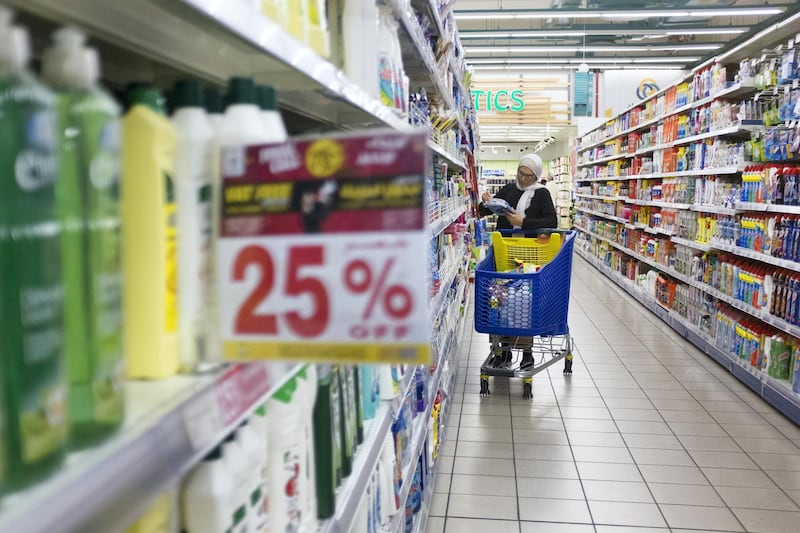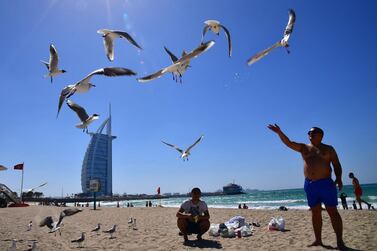Revenues from the UAE’s value added tax, which came into effect in January last year, exceeded government expectations in 2018, boosting state coffers and proving credit positive for the country, according to a Moody’s analysis.
“With non-oil sector growth still subdued, the strong VAT out-turn was largely attributable to higher than expected compliance with the new law,” the rating agency said in a report this week.
“The government’s 2018 and 2019 VAT revenue forecasts had included conservative assumptions regarding the level of compliance in the initial years of implementation.”
VAT collections were far higher than forecast in the first year of implementation, reaching Dh27 billion compared to the government's original projection of Dh12bn, according to government data published in May. The figure was even more than the government's 2019 projection of Dh20bn.
The robust level of compliance in the first year is a “positive reinforcement of the UAE’s high institutional strength”, Moody’s said. The agency rates the UAE government "Aa2 stable".
“Given this high level of compliance in the first year and our expectation for non-oil growth to remain subdued, we do not expect a significant increase in VAT collections in 2019. It will nevertheless be higher than currently budgeted,” the report added.
The UAE introduced a 5 per cent tax on certain goods and services in January 2018, in line with other GCC states following an agreement between the six-country economic bloc. The aim is to boost government revenues and help diversify previously hydrocarbons-dependent regional economies at a time of lower oil prices.
Under the UAE’s VAT legislation, the Federal Government will retain Dh8.1bn, equivalent to 30 per cent of collected revenues, while the remaining Dh18.9bn will be divided among the seven emirates.
VAT revenues are most significant for Sharjah, where they account for 16 per cent of total revenues, according to the Moody’s report. VAT is least consequential to Abu Dhabi, where major hydrocarbon and investment income from the sovereign wealth fund, the Abu Dhabi Investment Authority, reduce the significance of VAT collections that represent less than 2 per cent of total revenues, Moody's said.
The biggest beneficiary from the introduction of VAT in 2018 in terms of allocation was Dubai, which received around 60 per cent of the share of revenues attributed to the emirates in 2018, the report said. Dubai benefits from the highest level of tourism spending of all emirates and a higher daytime population as workers commute in from other emirates.
However, the addition of a new revenue source from VAT collections is also important for the federal government. Its share of VAT revenues equates to only under half of the direct budget grants it receives from Abu Dhabi and Dubai (Dh69.79bn) – "making [VAT] an important driver of own-source revenue and in turn less reliant on grant transfers from the emirates", Moody's said.
VAT revenues are likely to be the second-largest source of non-grant revenues for the federal budget in 2019, after combined royalties and dividends from the federal government’s holdings in the telecommunications sector.
There was only a nominal and short-lived impact on inflation from the introduction of VAT last year, as subdued demand “migrated” the inflationary impact leading many retailers to partially absorb the effect on their margins, Moody’s added.







